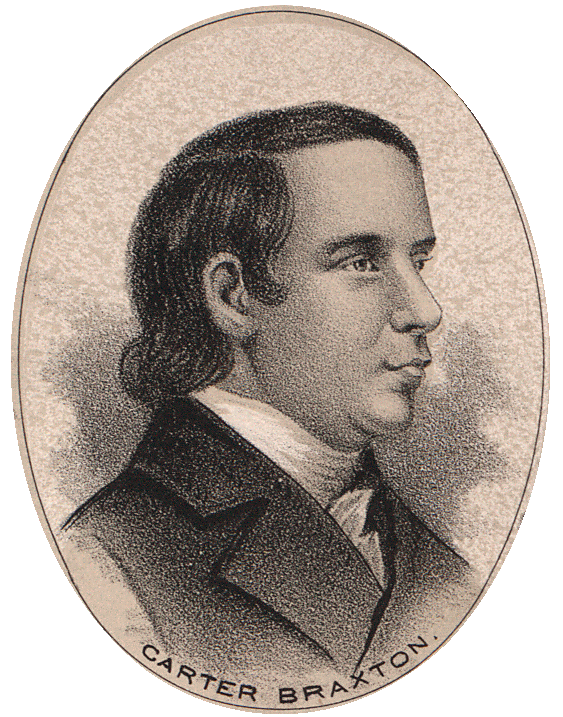Carter’s fortune allowed him to become a gentleman planter and public official. In 1761 he was elected to the Virginia House of Burgesses, where he became intimate with George Washington, Thomas Jefferson, Patrick Henry and Richard Henry Lee.
In 1769 he signed the Virginia Resolves, a document protesting parliamentary regulation of the colony’s affairs, and the Virginia Association, a non-importation agreement. From 1774 to 1776, he attended various revolutionary conventions. In 1774 he was elected to the convention of Virginia patriots.
As spokesman for Patrick Henry, Carter negotiated the payment during the April 20, 1775, “Gunpowder Incident,” with crown official (and his father-in-law), Richard Corbin. Upon dissolution of the royal government, in 1775, he accepted a position on the Council of Safety, and in the fall of that year, Braxton was selected to fill a vacancy in Congress due to the death of Peyton Randolph.
Initially a critic of independence, Braxton’s opinion evolved. On July 2, 1776, he voted for independence representing Virginia in the Continental Congress convening in Philadelphia. . Exactly one month later he entered his name beneath those of the other Virginia delegates on the Declaration of Independence. Shortly thereafter, Braxton returned to Virginia where he took his former seat in the state legislature. He continued to hold this position for many years. On October 10, 1797, at age 61, he died of a stroke.
Carter Braxton’s second great-grandson was William Tyler Page, who wrote the American’s Creed. This sponsorship is made to commemorate the Creed’s 100th Anniversary, which took place on April 3, 2018.


